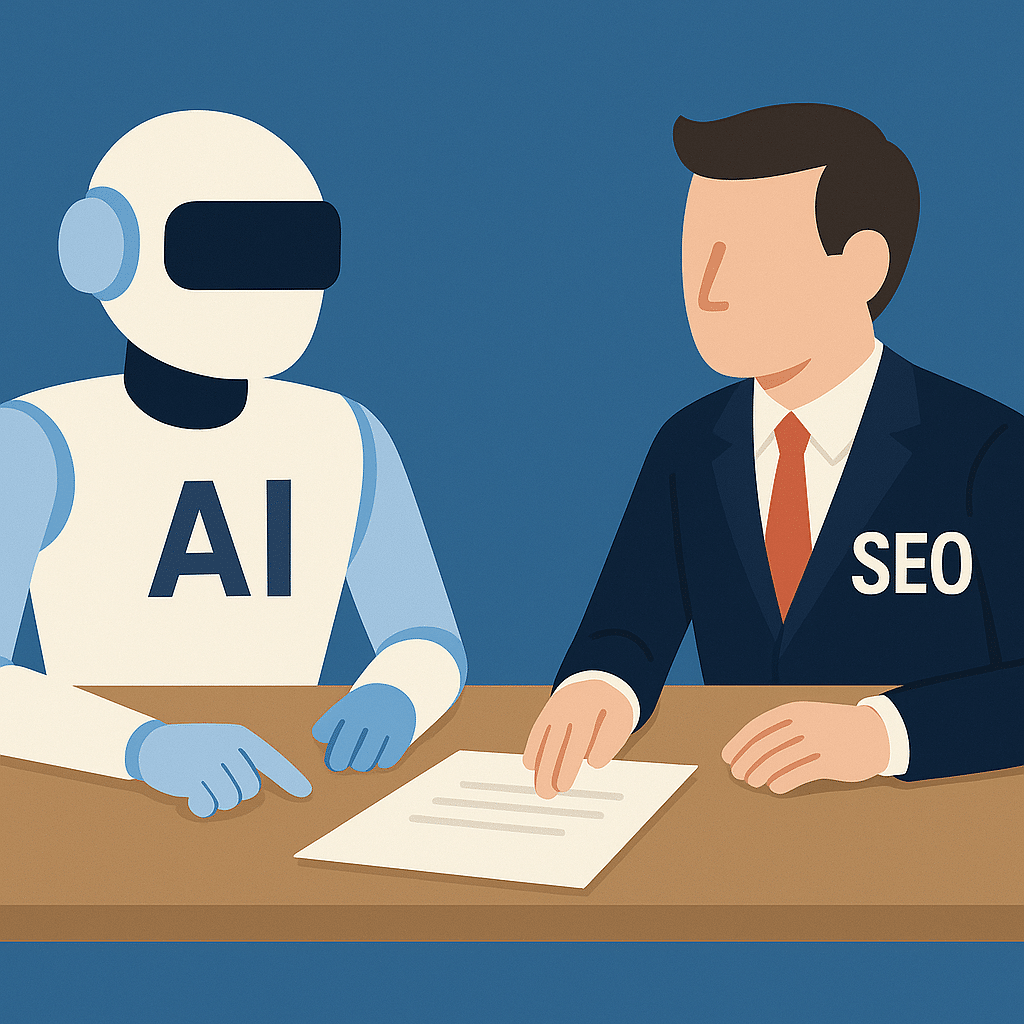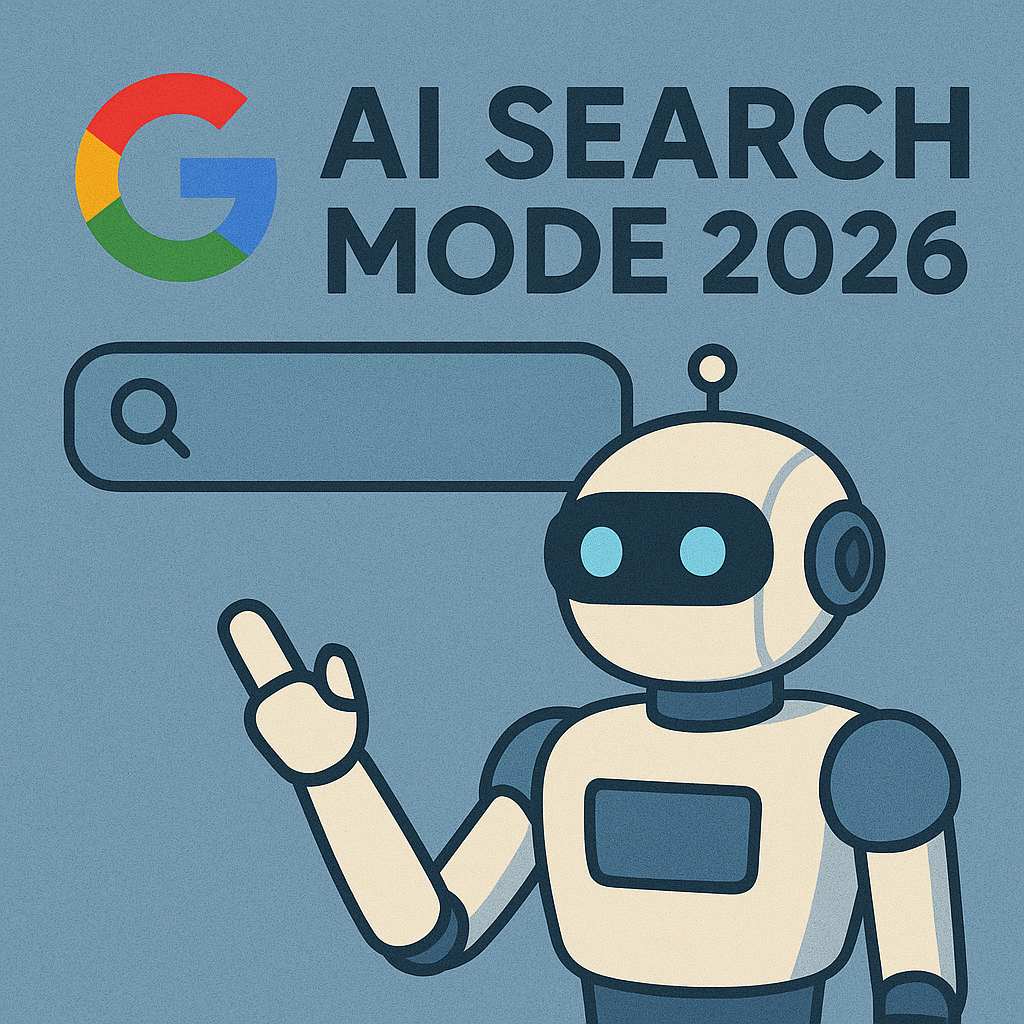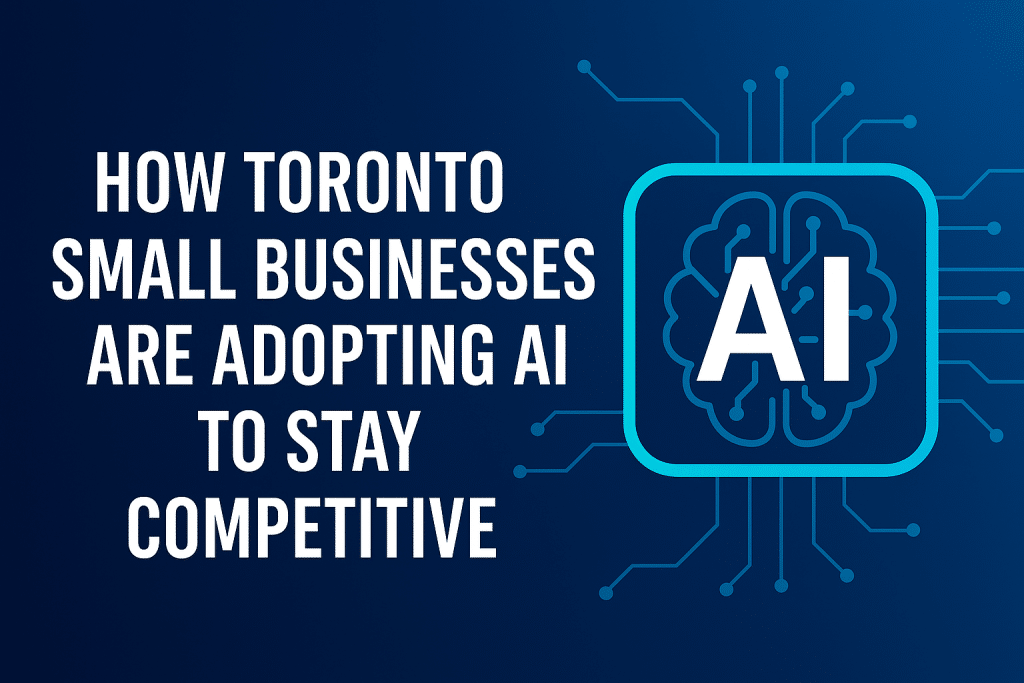Artificial Intelligence (AI) has quickly evolved from a buzzword into an operational necessity for businesses worldwide. In Toronto, one of North America’s fastest-growing business hubs, small businesses are embracing AI technologies to level the playing field, reduce costs, and compete with larger enterprises. This detailed guide explores how Toronto small businesses are adopting AI to stay competitive, which tools are driving the most impact, and what strategies they are implementing to build sustainable growth.
The Rise of AI Adoption in Toronto’s Business Community

Toronto has become a global center for AI innovation, with institutions like the Vector Institute and a growing number of AI startups fueling technological advancement. Small businesses are increasingly aware that AI is no longer exclusive to large corporations. From local retailers to service providers, entrepreneurs are adopting AI-powered tools that streamline operations, enhance customer experiences, and maximize profitability.
AI adoption is also supported by Toronto’s government and ecosystem. Programs and incentives encourage digital transformation, allowing even modest businesses to explore automation, predictive analytics, and machine learning solutions.
Why Toronto Small Businesses Are Turning to AI
Cost Efficiency and Resource Management

One of the primary reasons small businesses are embracing AI is cost savings. AI reduces the need for large teams by automating repetitive tasks such as scheduling, payroll, and data entry. For small businesses operating with limited budgets, this creates significant efficiency gains.
Enhanced Customer Engagement
Toronto is a diverse city with a multicultural customer base. AI-driven tools like chatbots, personalized email campaigns, and predictive customer behavior analysis help businesses tailor marketing strategies that connect with varied demographics.
Competing with Large Enterprises
AI allows small businesses to act with the precision and scalability of large enterprises. Tools once limited to Fortune 500 companies—such as demand forecasting, voice recognition, and advanced data analytics—are now affordable and accessible to local businesses in Toronto.
AI in Retail: Smarter Shops for Toronto Consumers

Toronto’s retail scene is highly competitive, and small businesses must differentiate themselves to attract loyal customers. AI solutions are reshaping retail in several ways:
Inventory Optimization: AI platforms predict buying trends and help retailers maintain optimal stock levels, reducing waste and lost sales.
Personalized Shopping: Using AI, small shops create personalized promotions based on customer preferences, increasing conversion rates.
AI-Powered Point of Sale (POS): Advanced POS systems integrate AI to analyze transactions and provide real-time insights into sales performance.
Local examples include Toronto-based boutiques using AI-driven recommendation systems to upsell complementary products and cafés leveraging AI loyalty programs to keep customers returning.
AI in Real Estate: Transforming Toronto Property Markets
Real estate is one of Toronto’s most competitive industries, and small agencies are increasingly integrating AI:
Property Valuation Tools: AI algorithms analyze market data to provide accurate property valuations, helping agents close deals faster.
Virtual Tours and Chatbots: AI-powered chatbots answer client inquiries 24/7, while virtual tour platforms enable buyers to explore properties remotely.
Predictive Analytics: AI forecasts market demand, helping small agencies position properties strategically.
By leveraging these tools, small real estate offices compete effectively against larger brokerages with more resources.
AI in Healthcare and Wellness for Small Clinics
Toronto is home to a thriving healthcare and wellness industry, including clinics, chiropractors, physiotherapists, and dental practices. Small businesses in this sector benefit from AI in multiple ways:
Automated Appointment Scheduling: AI reduces no-shows by sending smart reminders and rescheduling options.
Patient Data Analysis: Machine learning identifies health patterns and assists in providing personalized treatment plans.
Virtual Assistants: Clinics use AI-driven assistants to handle patient inquiries, freeing staff for in-person care.
These tools enhance patient experience while enabling small healthcare businesses to maintain lean operations.
AI in Marketing: Helping Toronto Businesses Rank and Sell
Marketing is one of the most critical areas where AI is transforming Toronto small businesses.
Search Engine Optimization (SEO) with AI
AI-driven SEO tools analyze competitor rankings, keyword opportunities, and content gaps. By using these insights, Toronto businesses enhance their visibility on Google and drive more local leads.
Social Media Automation
Platforms like Jasper, Copy.ai, and Lately AI help create and schedule optimized social media posts. Toronto businesses can maintain an active online presence without hiring full-time staff.
Predictive Analytics for Marketing Campaigns
Small businesses rely on AI to analyze past performance and predict the ROI of future campaigns, ensuring smarter ad spend.
AI in Finance and Accounting for Small Businesses
Financial management is often a pain point for small businesses. AI tools are streamlining this area:
Automated Bookkeeping: Cloud-based AI platforms handle invoicing, expenses, and tax preparation.
Fraud Detection: AI systems monitor transactions in real-time, protecting businesses from fraud.
Financial Forecasting: AI predicts cash flow fluctuations, helping owners make informed decisions.
Toronto-based contractors, consultants, and retailers benefit from these solutions, eliminating costly accounting errors while ensuring compliance with local tax laws.
AI-Powered Customer Support and Communication
Customer service is central to small business success in Toronto’s competitive environment. AI-powered communication tools are making customer interactions smoother and more efficient.
Chatbots: Small businesses deploy chatbots on their websites to respond instantly to customer queries.
Voice Assistants: Integration with Google Assistant and Alexa enables customers to make bookings using voice commands.
Sentiment Analysis: AI analyzes customer feedback, reviews, and social media mentions to identify strengths and weaknesses.
These tools build stronger customer relationships and improve brand reputation.
AI in Food and Hospitality Businesses in Toronto
Restaurants, cafés, and catering businesses in Toronto are increasingly turning to AI:
Smart Reservations: AI platforms optimize table bookings, reducing wait times.
Menu Personalization: Algorithms recommend dishes based on past preferences.
AI-Driven Delivery Optimization: Food delivery businesses use AI to determine the fastest routes, ensuring timely service.
These technologies enhance customer satisfaction while helping food businesses maintain efficiency.
How Toronto Small Businesses Are Implementing AI on a Budget
Adopting AI doesn’t always require massive investments. Toronto small businesses are leveraging affordable and scalable tools:
Freemium Software: Many AI solutions offer free or low-cost entry points.
Cloud-Based Platforms: Subscription-based services allow small businesses to pay only for what they use.
Collaborations with AI Startups: Small businesses often collaborate with local AI startups for pilot projects, gaining cutting-edge solutions at reduced costs.
Challenges Toronto Small Businesses Face with AI Adoption
While AI adoption offers immense benefits, challenges remain:
Lack of Technical Expertise: Many small business owners are unfamiliar with AI technologies.
Data Privacy Concerns: Protecting customer data is a priority, especially in industries like healthcare and finance.
Integration Issues: Incorporating AI into existing workflows can be complex.
Cost Barriers: While AI is becoming more affordable, some advanced systems remain costly for small operations.
Overcoming these challenges requires strategic planning, training, and partnerships with trusted AI providers.
The Future of AI for Small Businesses in Toronto
The future of AI adoption in Toronto small businesses is promising:
Wider Accessibility: As AI becomes more mainstream, costs will continue to decrease, making it accessible to even the smallest companies.
Industry-Specific Solutions: Expect tailored AI solutions for niche sectors such as construction, design, and boutique retail.
Enhanced Collaboration: Partnerships between Toronto’s AI startups and small businesses will accelerate innovation.
AI Regulations: As AI use expands, regulatory frameworks will ensure ethical and transparent adoption.
Small businesses that adopt AI now are better positioned to lead in their industries over the next decade.
Conclusion: AI as a Competitive Advantage for Toronto’s Small Businesses
Artificial Intelligence is no longer a futuristic concept reserved for large corporations. In Toronto, small businesses across industries—from retail and real estate to healthcare and hospitality—are leveraging AI to reduce costs, improve efficiency, and enhance customer experiences.
By embracing affordable AI tools, prioritizing customer-centric solutions, and staying agile, Toronto small businesses can secure a lasting competitive edge in a rapidly changing marketplace. Those who hesitate risk falling behind, while those who adopt early stand to thrive in Canada’s largest business hub.


